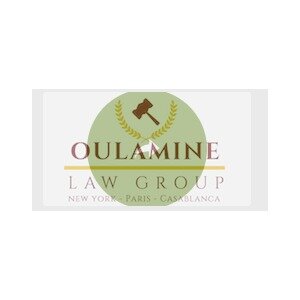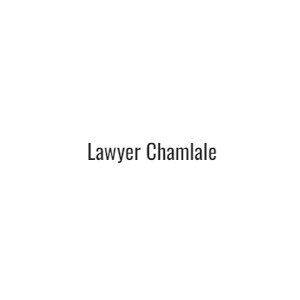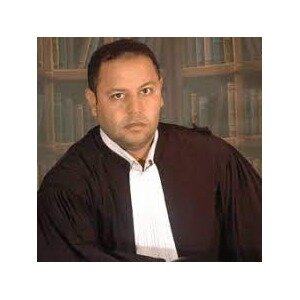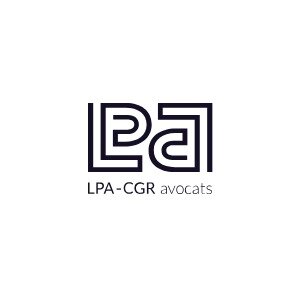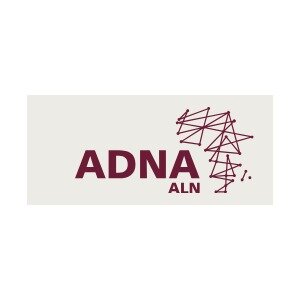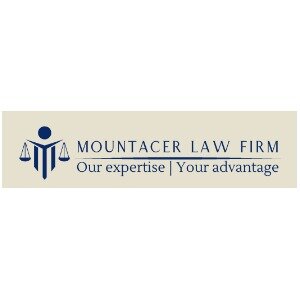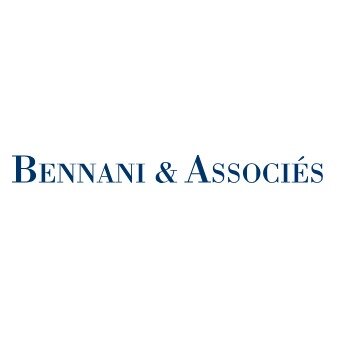Best Structured Finance Lawyers in Casablanca
Share your needs with us, get contacted by law firms.
Free. Takes 2 min.
List of the best lawyers in Casablanca, Morocco
About Structured Finance Law in Casablanca, Morocco
Structured finance is a highly specialized area of financial law and practice that involves complex financial instruments designed to manage risk and facilitate access to capital. In Casablanca, Morocco’s economic powerhouse and major financial hub, structured finance plays a critical role in large-scale projects, real estate developments, infrastructure financing, and capital market transactions. The practice commonly includes securitization of assets, project finance, syndicated loans, and issuing asset-backed securities. Given Casablanca's rapidly growing financial sector and its role as host to the Casablanca Finance City (CFC), structured finance transactions here often require a rigorous understanding of local and international legal frameworks, strict regulatory compliance, and risk management considerations.
Why You May Need a Lawyer
Structured finance transactions are complex and involve elaborate arrangements between borrowers, lenders, investors, and regulatory authorities. Here are some situations when legal assistance is indispensable:
- Drafting or negotiating complex loan and securitization agreements
- Advising on compliance with Moroccan and international financial regulations
- Structuring cross-border transactions involving Moroccan assets or issuers
- Providing due diligence and risk analysis for investors and sponsors
- Resolving disputes, defaults, or enforcement actions in connection with structured products
- Interpreting the implications of Moroccan banking, securities, and bankruptcy laws
- Guiding the setup of special purpose vehicles (SPVs) and trust entities
- Advising on tax optimization strategies for structured deals
- Assisting with regulatory filings and liaising with authorities such as Bank Al-Maghrib or the Moroccan Capital Markets Authority (AMMC)
- Adapting international finance documents and standards to Moroccan legal requirements
Local Laws Overview
Morocco’s legal framework for structured finance is governed by a combination of commercial, banking, and securities laws. Some of the key aspects relevant in Casablanca include:
- Banking Law: Regulates credit institutions, set out by Bank Al-Maghrib, Morocco’s central bank, including provisions for syndicated lending and project finance.
- Securitization Laws: Morocco passed a securitization law establishing a legal basis for asset-backed securities, including the creation of special purpose vehicles and investor protection measures.
- Capital Markets Regulation: The Moroccan Capital Markets Authority (AMMC) oversees issuance, trading, and reporting standards for financial instruments and structured products.
- Foreign Exchange and Investment Controls: Transactions involving foreign investors or cross-border funding must comply with foreign exchange regulations issued by the Moroccan Office des Changes.
- Taxation: Morocco offers specific tax rules affecting structured finance arrangements, including withholding tax, VAT, and stamp duties.
- Corporate and Insolvency Law: Bankruptcy and insolvency statutes play a critical role in structuring deals to manage risk and enforce creditor rights.
Frequently Asked Questions
What is structured finance and how is it used in Casablanca?
Structured finance involves advanced financial strategies that pool assets or future cash flows to create securities or other financing solutions, often used by companies in Casablanca to raise capital or manage risk for large projects.
Are structured finance transactions legal in Morocco?
Yes, structured finance arrangements such as asset securitization, project finance, and syndications are recognized under Moroccan law, subject to compliance with relevant banking and securities regulations.
Who regulates structured finance activities in Casablanca?
The main regulators are Bank Al-Maghrib (the central bank) for banking activities and the Moroccan Capital Markets Authority (AMMC) for capital markets and securities transactions. Other governmental bodies may also be involved depending on the transaction structure.
Is foreign investment allowed in structured finance deals in Morocco?
Foreign investors can participate in structured finance transactions, but such investments must comply with Morocco’s foreign exchange controls and often require declarations or authorizations from the Office des Changes.
What types of assets can be securitized in Morocco?
A wide range of assets may be securitized, including loans, mortgages, receivables, and future cash flows, as permitted under Moroccan securitization law.
Do structured finance transactions require special tax considerations?
Yes, tax implications can be complex, involving withholding tax, VAT, and other duties. Legal and tax advice is necessary to optimize transaction structure and avoid unexpected liabilities.
What are the steps for initiating a structured finance transaction in Casablanca?
Typical steps include asset identification, setting up a special purpose vehicle, structuring and documenting the transaction, regulatory filings, and closing. Legal representation ensures compliance at each stage.
How are defaults or disputes handled in structured finance arrangements?
Moroccan law provides mechanisms for dispute resolution, which may involve courts or arbitration. The specific process depends on contractual agreements and the nature of the underlying assets.
Can structured finance techniques be used for infrastructure projects?
Yes, project finance and related structured finance methods are frequently used in infrastructure development, particularly in energy, transportation, and real estate sectors in Casablanca.
Do I need a Moroccan lawyer if the transaction involves international parties?
Yes, local legal counsel is vital to ensure compliance with Moroccan law, manage regulatory requirements, and adapt international documentation and market practice to the local context.
Additional Resources
If you need further information or wish to research more about structured finance in Casablanca, consider these resources:
- Bank Al-Maghrib - The Moroccan central bank, publishing regulations and guidance on banking and financial services.
- Moroccan Capital Markets Authority (AMMC) - Supervision of capital markets, disclosures, and public offerings.
- Office des Changes - For information on foreign exchange controls and foreign investment requirements.
- Casablanca Finance City Authority - Provides resources and incentives for financial and structured finance activities in Casablanca.
- Morocco’s Ministry of Economy and Finance - Access to official policy, laws, and financial sector updates.
- Professional law firms and financial advisory firms in Casablanca - For specialized guidance and local expertise.
Next Steps
If you are considering entering a structured finance transaction or need advice on existing arrangements in Casablanca, Morocco, here is how you can proceed:
- Clearly define your objectives and outline the assets or projects involved.
- Gather all relevant documents, including contracts, business plans, and corporate records.
- Seek a consultation with a law firm or legal specialist that has experience with structured finance in Morocco.
- Discuss your situation openly, identifying potential legal, regulatory, or tax issues early on.
- Ensure your legal adviser coordinates with other professionals such as tax consultants and financial advisors for a comprehensive view.
- Follow your legal adviser’s guidance on regulatory filings, compliance, and documentation.
- Stay informed about changes in Moroccan finance laws that may affect your transaction.
Lawzana helps you find the best lawyers and law firms in Casablanca through a curated and pre-screened list of qualified legal professionals. Our platform offers rankings and detailed profiles of attorneys and law firms, allowing you to compare based on practice areas, including Structured Finance, experience, and client feedback.
Each profile includes a description of the firm's areas of practice, client reviews, team members and partners, year of establishment, spoken languages, office locations, contact information, social media presence, and any published articles or resources. Most firms on our platform speak English and are experienced in both local and international legal matters.
Get a quote from top-rated law firms in Casablanca, Morocco — quickly, securely, and without unnecessary hassle.
Disclaimer:
The information provided on this page is for general informational purposes only and does not constitute legal advice. While we strive to ensure the accuracy and relevance of the content, legal information may change over time, and interpretations of the law can vary. You should always consult with a qualified legal professional for advice specific to your situation.
We disclaim all liability for actions taken or not taken based on the content of this page. If you believe any information is incorrect or outdated, please contact us, and we will review and update it where appropriate.




